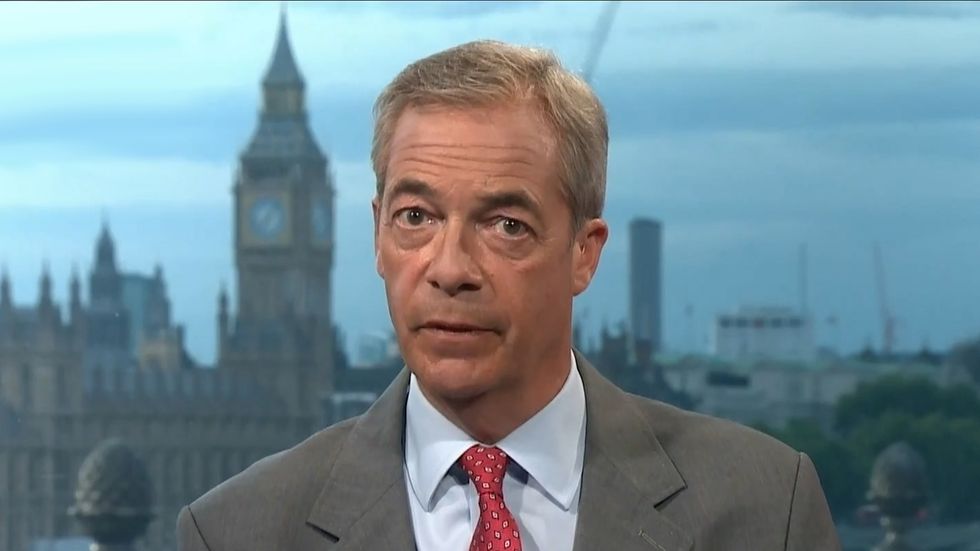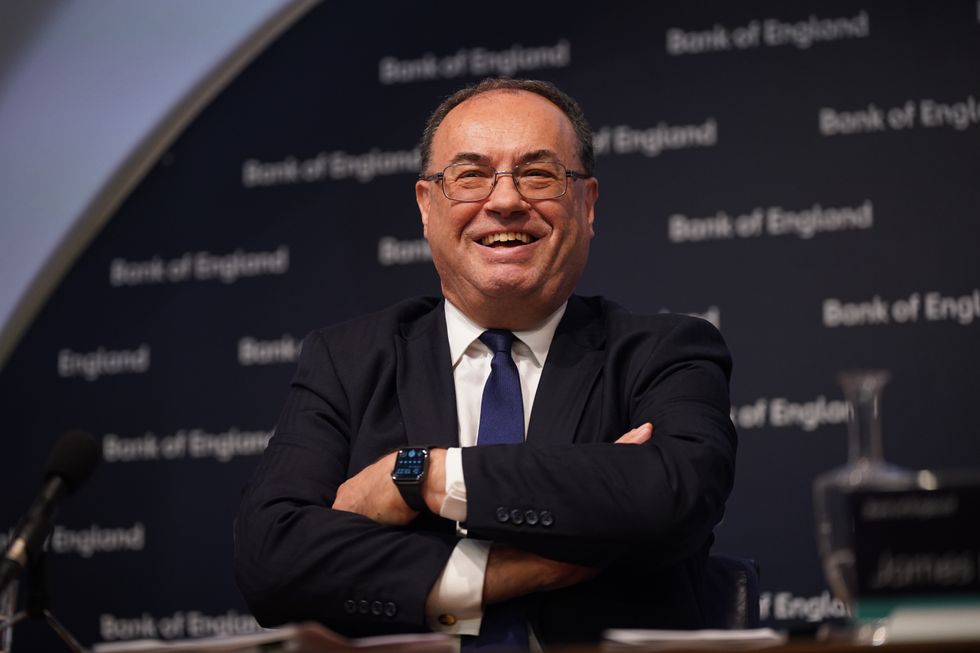Don't Miss
Most Read
Trending on GB News
Nigel Farage has slammed the Bank of England after its announcement of another recession.
The UK will enter five consecutive quarters of recession with gross domestic product falling as much as 2.1%, the Bank said.
Bank policymakers raised interest rates to 1.75% from 1.25%, the biggest single rise since 1995, as they tried to control the runaway inflation.
Consumer Prices Index (CPI) inflation will hit 13.3% in October, the highest for more than 42 years, if regulator Ofgem hikes the price cap on energy bills to around £3,450, the Bank’s forecasters said.
The dire economic conditions will see real household incomes drop for two years in a row, the first time this has happened since records began in the 1960s.
Nigel Farage
GB News
Governor of the Bank of England Andrew Bailey
Yui Mok
GB News host Nigel reacted to the news by accusing the Bank of not seeing high inflation coming.
He wrote: "The Bank of England has totally failed us.
"They didn't see high inflation coming. Then they told us it was 'transitory'.
"Now they say it is here to stay for years and will hit 13%.
"They are so bad they make politicians look good."
At a press conference following the rates decision, Bank of England governor Andrew Bailey said returning inflation to 2% remains its priority "no ifs, no buts".
He said the Bank took “forceful policy action” now to help avoid bigger hikes further down the line.
He said: “I recognise the significant impact this will have, and how difficult the cost-of-living challenge will continue to be for many people in the United Kingdom.
“Inflation hits the least well-off hardest. But if we don’t act now to prevent inflation becoming persistent, the consequences later will be worse, and will require larger increases in interest rates.”












